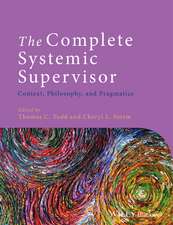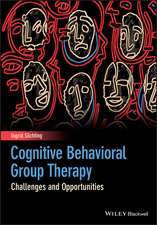International Psychotherapy: Theories, Research and Cross-Cultural Implications
Autor Lynn Simek-Morgan Editat de Lynn Simek-Downingen Limba Engleză Hardback – 31 mai 1989
In this strikingly new treatment of issues in psychotherapy, Lynn Simek-Downing compiles the work of scholars from around the world to gain a cross cultural perspective of the therapeutic process. The contributors of "International Psychotherapy" examine the cross cultural implications of ethics, research and the theories and practice of psychotherapy. They conclude that although the practice of and research in psychotherapy generally follow the same patterns across all cultures, the aims, goals and content of the psychotherapeutic process vary widely among cultures. This book, serving as a positive augmentation to prevalent theories of psychotherapy, is ideal for students, scholars, professors, and researchers from any cultural background.
The book begins with a discussion of the converging themes in psychotherapy as presented at the International Conference on Psychotherapy. As is stated in the preface: 'People of all nations and political beliefs experience grief, loss, pain, difficulties in life, and trauma. We are all different and we are all the same.' The chapters are divided into three sections. The first examines the differences and similarities between traditional and modern therapies and the politics and social implications of psychotherapy. The second section explores new trends in psychotherapy theories. It includes chapters on the hypnosis and cognitive therapies. Finally, the contributors examine new trends in psychotherapy research.
Preț: 468.08 lei
Preț vechi: 708.16 lei
-34% Nou
89.57€ • 97.60$ • 75.47£
Carte tipărită la comandă
Livrare economică 23 aprilie-07 mai
Specificații
ISBN-10: 0275930963
Pagini: 270
Dimensiuni: 156 x 234 x 16 mm
Greutate: 0.56 kg
Editura: Praeger
Descriere
The book begins with a discussion of the converging themes in psychotherapy as presented at the International Conference on Psychotherapy. As is stated in the preface: 'People of all nations and political beliefs experience grief, loss, pain, difficulties in life, and trauma. We are all different and we are all the same.' The chapters are divided into three sections. The first examines the differences and similarities between traditional and modern therapies and the politics and social implications of psychotherapy. The second section explores new trends in psychotherapy theories. It includes chapters on the hypnosis and cognitive therapies. Finally, the contributors examine new trends in psychotherapy research.










